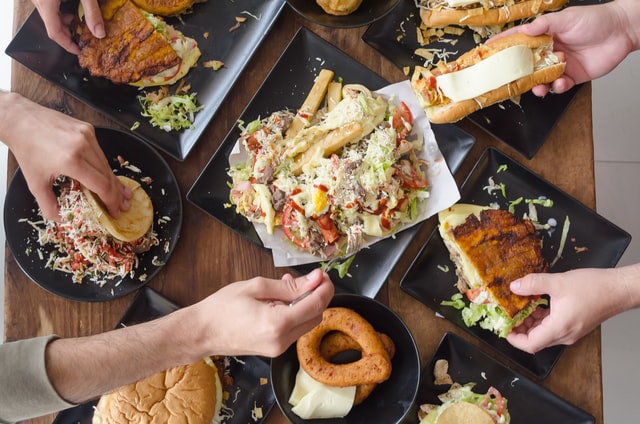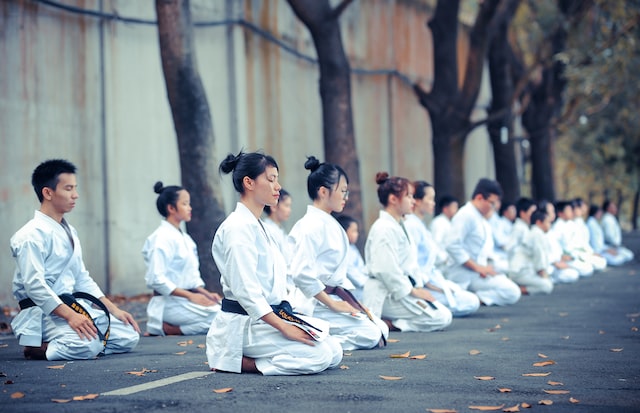How to prepare for final exams in med school
To wrap up first year of med school, I had 4 exams over 7 days. One final exam to wrap up the neuro block, one lab exam, an OSPE exam, and a cumulative exam for first year. Here are some tips on how to prepare for final exams in med school, particularly the OSPE and cumulative exams.
How to prepare for final exams tip #1: start early
Preparing for OSPE exam
My friends and I started prepping for OSPE 3 weeks before the exam. We took turns practicing on each other for 1-2 hours each day, a couple times a week.
It was slow going when we first started practicing. We needed to get familiar with all the steps and remember how to simply describe the test to the patient. Although we were all learning the process, it felt awkward and uncomfortable practicing on each other.
But the more we practiced, the more comfortable and faster we got with the exams.
I also practiced the exams on my own at home. I pretended to have a patient and would run through the entire exam script. This allowed me to rehearse all the steps and patient instructions so that on exam day, I didn’t miss anything and lose easy marks.
All this repetition added up.
By the time we did the mini-OSPE exam, we finished some tests with so much time to spare that we thought we had missed some steps (we hadn’t).
How do you know how to prepare?
Throughout the term, we learned various physical exams in our tutorials. For example, during the digestion & metabolism block, we learned how to do the abdominal exam. And during the neuro block, we learned all the neuro and mental exams. So checking for reflexes, assessing muscle strength, vision, and hearing, and administering a mini mental status exam.
During these tutorials, we had simulated patient interactions with volunteer patients. Our facilitators guided us through the physical exams and gave us pointers for the actual OSPE.
Although we learned a lot of physical tests, only 10 exams were testable. And we were tested on 4 of those exams. You can read more about what the OSPE exam process was like here.
We received a rubric for each testable exam, which provided a step-by-step outline. This also let us know how we’d be scored. Broadly, we were graded on professionalism, patient instructions, and technique.
How to prepare for final exams tip #2: tutor other students
Preparing for final cumulative exam
The final cumulative exam covered material from both terms 1 and 2. It was quite challenging to make time to review old term 1 material while learning new term 2 material.
Luckily, being in IEA and the Honours Selective required some tutoring responsibilities, which was helpful. That external accountability forced me to study, more than internal accountability alone.
For IEA, I had to complete 2 tutoring hours. I was fortunate to get matched early in the term. The student was in the first module of term 1, which helped me review some module 1 topics.
And in the Honours Selective, I had to prepare 10 NBME style questions on any term 1 topics. I also had to facilitate one 40-minute tutoring session using pre-made questions.
So for the 10 questions, I chose mostly cardio topics that I knew I needed to revisit. This helped me cover big topics from module 3 in term 1.
And for the tutoring session, I signed up to facilitate the MSK content clinic. Although I selected pre-made questions from a PDF, I still had to know how to explain the correct and incorrect answer choices. So prepping for the tutoring session got me to review MSK topics, which covered module 2 from term 1.
So altogether, IEA and Honours Selective commitments got me to review a little bit from each term 1 module by 2 months into term 2.
How to prepare for final exams tip #3: use practice questions
Preparing for final cumulative exam
One resource we were provided to help prepare for the cumulative exam was a file of NBME questions. These questions covered the big topics to be tested.
After doing the NBME questions, I revisited any topics I couldn’t remember or felt weak on. Even the incorrect answer choices were helpful because they cued me to the topics I should know.
Instead of revisiting lecture slides, I found YouTube videos for those topics. These channels were my main study resources.
After learning the topic, I unsuspended the relevant Anki cards in the AnKing deck. That helped me get multiple reviews before the exam.
Although I started doing these practice questions about 2 months before the exam, I didn’t go hard until 3-4 weeks prior. Partly because I had done some studying through the tutoring commitments. And partly because I knew I did well in term 1. Also, I had kept some Anki cards active from term 1. So I knew that I still remembered and understood the big concepts.
I also knew which topics I needed to revisit. Like the coagulation cascade and purine/pyrimidine synthesis. Because I knew my strengths and weaknesses, I felt I didn’t need to start studying too early.
If I wasn’t aware of all this, I would have started using the practice questions from the start of term 2.
Final thoughts
Starting OSPE prep early and having tutoring commitments that forced me to study early for the cumulative exam were really helpful. And using practice questions was great for guiding my studying.
Perhaps most importantly, these strategies helped me avoid cramming right at the end before all the final exams, so I was less stressed. (And able to enjoy a lot of the FIFA world cup.)
How do you study for final exams?
-M
Want updates on the latest posts? Email theislandmedonline@gmail.com or complete this form to join the email list today!








One Comment
Comments are closed.